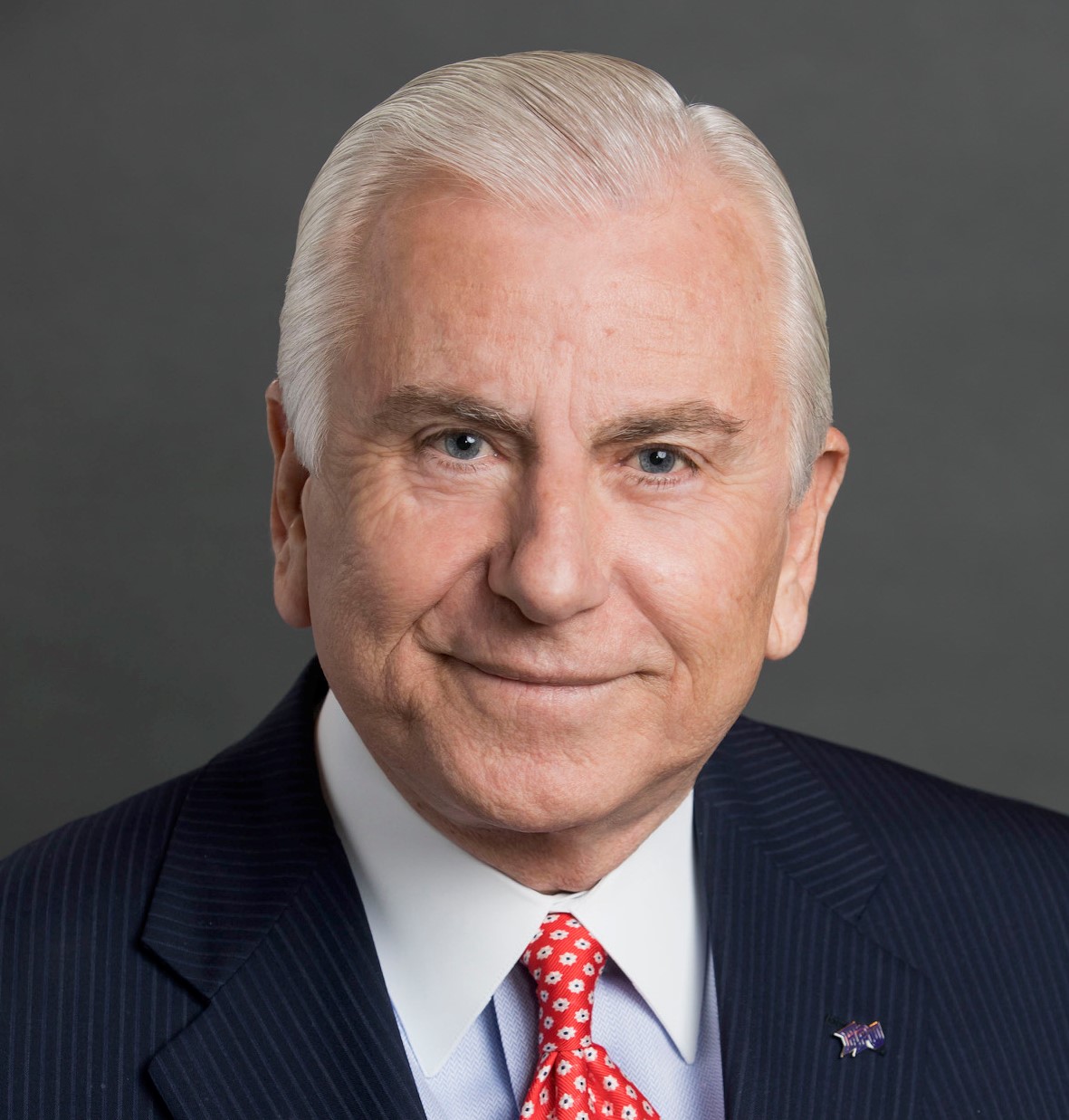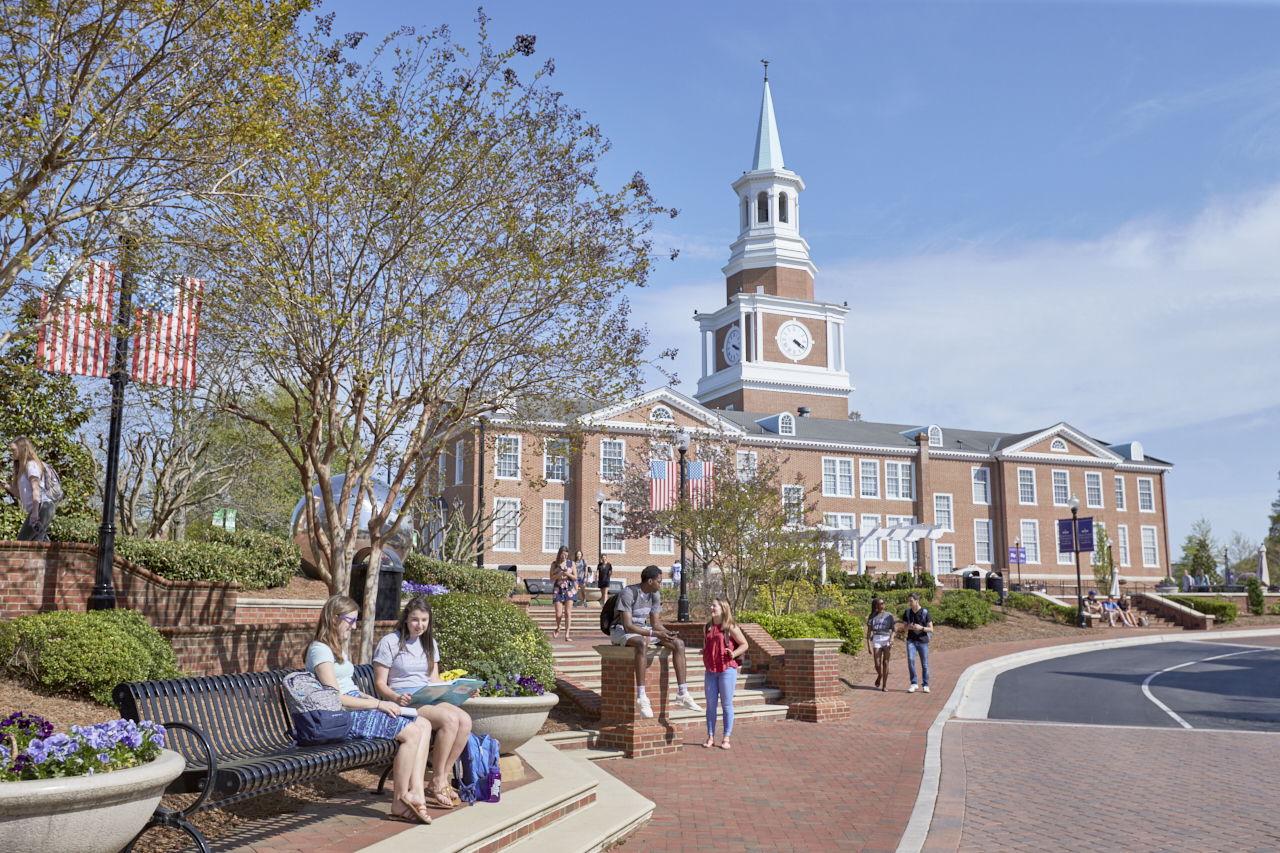When the COVID-19 pandemic turned higher education upside down last year and the majority of institutions shut down, High Point University in North Carolina got to work.
It built a medical clinic, rented eight hotels, put in a 6,000-square-foot ice skating rink and held block events each afternoon with food trucks and music with social distancing, of course.
“We did not take the [remote] approach. We stayed open all the time,” said Dr. Nido Qubein, President of High Point. “People loved the fact that we were courageous. We took all the precautions. We did many things to ensure that we could keep our students safe.”
Currently, High Point has just 18 positive cases among 5,600 students and two members of staff and faculty out of nearly 2,000.
For Qubein, who has overseen the university’s massive growth through the past 15 years – which by the way included a 5.4% boost in enrollment this past fall – that kind of bold leadership and calculated risk-taking has been a driver of success. So, too, have been his words – eloquent, visionary and yes, brash at times.
“Remember the Recession?” Qubein says, referring to 2008. “People were scared to death. Everybody was bemoaning what’s going to happen. We just kept going. We kept building and growing. There was a pandemic, and we said, it’s not the end of the world. We put together a task force. We communicated with parents and students continually. It’s paid off in rich dividends. We have a mindset that says, we can grow, we can do wonderful things, and we have a duty and responsibility to our students and their families and employees. Somehow, some way, the formula works.”
More from UB: High Point’s new $80M library will be resource-rich
That formula has led to large donations and the funding of $2 billion in campus property and projects, including $500 million on elegant structures such as a new arena and conference center that bears his name and his wife’s name. Most importantly, its focus on the future has included a heavy emphasis on academics – the university has increased its faculty from 108 to 330, launched six additional academic schools and has plans for an $80 million library that will be completed in 2024.
All of it, he says, is done with purpose.
“There is a conscious focus on ensuring that every student at High Point University receives an extraordinary education in an inspiring environment with caring people,” Qubein says. “Every day we get up, we ask the simple question: how can we provide for our students the extraordinary learning experience and the outstanding maturation experience from freshmen to graduate school? What does it take to provide them that in a significant and sustainable manner?
“There can’t be a chasm between the worst of what we do, and the best of what we do. It cannot be separated by more than a centimeter. Otherwise, you’re not providing for students the holistic education that we work so hard to achieve.”
Insight from a leader on success

High Point’s success, its seemingly endless ability to build and rebuild infrastructure and expand its offerings, has led it to be named a perennial top choice for innovation among Regional Colleges in the South by U.S. News & World Report. Its remarkable turnaround from near the bottom of that list has been orchestrated by a leader who was in business for 35 years but had just $50 when he came to the United States as an immigrant from the Middle East.
Since his arrival in North Carolina, High Point has given $55 million a year in scholarships and is continuing to grow those for underserved and first-generation students. The revenue budget has expanded from $28 million to $340 million. Its assets have grown from $56 million to today’s $1.1 billion.
In an engaging conversation with University Business, Qubein offered some of the secrets to High Point’s success over the past decade:
On faculty: “Our faculty have a growth mindset. They’re not quick to say, no. They are mentors, not lecturers, and the focus here is not on teaching, but on learning. You nurture a student’s learning journey from freshmen to graduation in a much more sophisticated and effective way when you acknowledge that students need all aspects of learning and development to become the mature and responsible citizens that they can be.”
On student success: “We’ve invested very appropriately, yet generously in expanding academic programs, attracting stellar faculty and building an ecosystem that encourages each student to learn academically and to have life skills. So that upon graduation, they can start a business or join a business, or join a nonprofit or become a schoolteacher, whatever it is they want to be in life. But to be sure, that they are armed with the skills that allow them to succeed in a globally competitive marketplace.”
On providing a top-quality educational experience: “Parents don’t want to pay large fees to send their child to school, whereupon graduation they can’t find a job. 97% of our students will find a job or go to graduate school (which is 11 points above the national average). Our graduate students are 100% employed within six months upon graduation. We guarantee every student an internship. We guarantee that you’re going to graduate in four years. We also provide a graduate degree called Communication and Business Leadership that is tuition free. We’re not trying to win any awards. We’re simply trying to prepare our students for the world as it is going to be.”
On business acumen: “We insist that upon graduation from college, you should have some knowledge of communication, some knowledge of business and some knowledge of leadership. If you don’t have that, you really haven’t been fully educated; you’ve merely been trained in a discipline. So we provide that tuition-free (through the Masters in Communication and Business Leadership). We don’t do this because we think it’s cute or because we have ample money to waste. We do this because our conviction is that every student ought to be globally aware and every student ought to have an understanding of communication, of business and leadership. And every student ought to work in an internship before graduation.”
On the changing face of higher education: “Higher education is changing in measurable ways. We’re no longer dealing with a geographic limitation in terms of territory. Our students have to be adept to work anywhere in the world, or at least work with large organizations that have tentacles all over the world. They have to be globally aware and globally informed. We also understand that today’s generation is different than my generation. So, you have to make sure that they’re learning in different ways.”
On lessons learned:
“1. We believe in the art of the possible. There are no such things as unrealistic dreams, but only unrealistic timelines. While that may not be literal, it is certainly aspirational.
2. We want to be selectively extravagant and prudently frugal. If you’re going to build a nursing program, build the best one you can. That’s not the time to be frugal. But we can’t be extravagant all the time. So, there are areas where we are selectively extravagant, like hiring the best faculty and giving him the best resources, but then we are prudently frugal when it comes to making sure that we operate in a responsible and efficient manner.
3. We have faithful courage. So, faith alone is not enough, and courage alone is not enough. But if you put the two together and have faithful courage, you can move mountains and you can take risks. Life is not about risk avoidance. Life is about risk management. So, if a risk can lead us to a better place, and if we prepare properly for what might happen, then, we go for it. That commands faithful courage. It commands agility.”
On High Point’s success during his tenure: “I am not so much proud as I am grateful. I am grateful for the opportunity to plant seeds of greatness in the minds, hearts and souls of our students. I’m grateful for the intelligent minds that I get to work with every day, grateful that we live in America and that we have such a great educational system that we can nurture. I am for sure appreciative of what we have done here. Nobody ever heard of the school. We’ve come a long way. We survived the recession and the pandemic in phenomenal ways. That doesn’t mean that we’re smarter than anybody. It simply means that we have identified the levers that create for a student a future that is filled with success and framed with significance.
When I came to High Point, the critics were many, the ones who stand outside the circle, looking at what you’re doing, and thinking of what we consider to be innovative, they were thinking of it as silly or is frivolous. And I would say to my team, don’t let that disrupt you in any way. Because these people look at us and see the ‘what’. They don’t understand the ‘why’. Once we have a chance to explain the ‘why’ they would want to be a part of it. And sure enough, that has been correct.”








